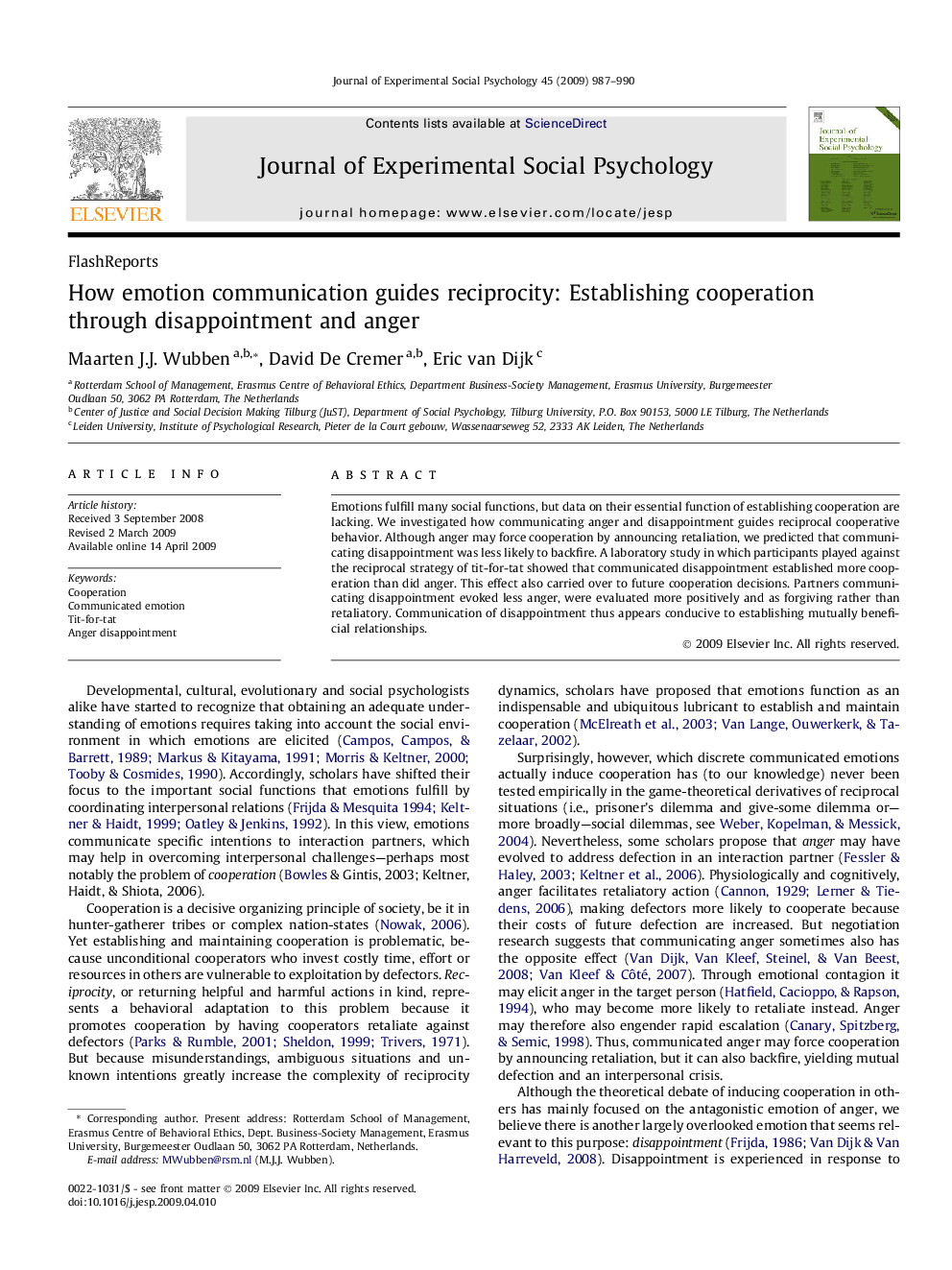| Article ID | Journal | Published Year | Pages | File Type |
|---|---|---|---|---|
| 948882 | Journal of Experimental Social Psychology | 2009 | 4 Pages |
Emotions fulfill many social functions, but data on their essential function of establishing cooperation are lacking. We investigated how communicating anger and disappointment guides reciprocal cooperative behavior. Although anger may force cooperation by announcing retaliation, we predicted that communicating disappointment was less likely to backfire. A laboratory study in which participants played against the reciprocal strategy of tit-for-tat showed that communicated disappointment established more cooperation than did anger. This effect also carried over to future cooperation decisions. Partners communicating disappointment evoked less anger, were evaluated more positively and as forgiving rather than retaliatory. Communication of disappointment thus appears conducive to establishing mutually beneficial relationships.
